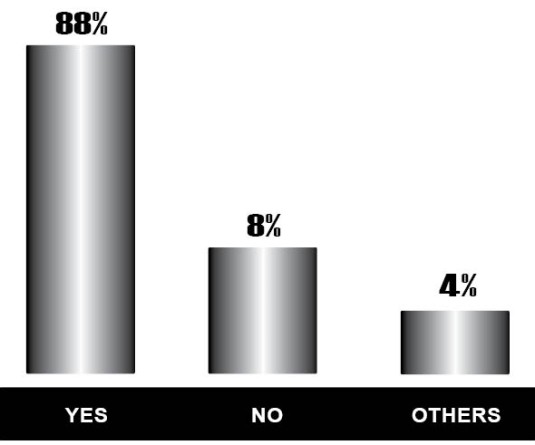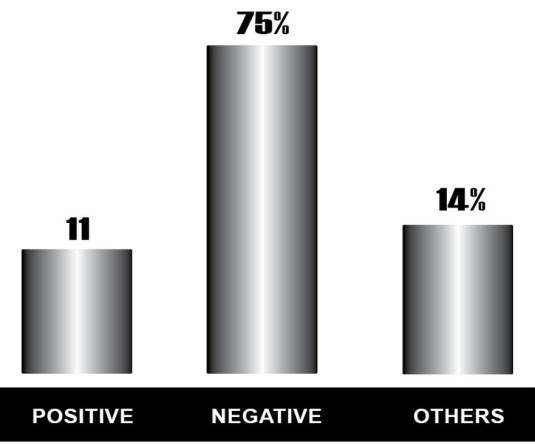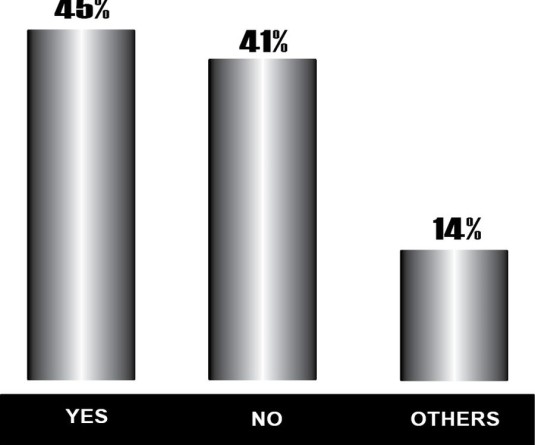Poll

Some of those who voted YES had this to say:
• Yes. The process of consultation is good but it should not be confined to tribal and public organisations only.
• Yes to some extent on some matters, but not on all matters.
• It sure does represent the voice of the people given that all the stakeholders are invited but the framework agreement should be priority here. RIIN can be taken up after the FA is brought to honorable solution.
Some of those who voted NO had this to say:
• No. At the grassroot level, the Village Council is the apex decision making body of respective villages. Then the decision & opinions are to be carefully considered at range or Khel level. Further, the concerning issues are to be deliberated by each tribal apex bodies. A healthy debate from all the tribal organisations & consensus from them is necessary for implementing any Government policies or schemes. Voice of NGO's, Student bodies, NMA, Church bodies must also be taken into account. Thus, plenty of time is required for formulating a final resolution to any issues. Time is a factor- a hurried procedure will never genuinely represent the will of the people.
• No. The government should go directly to the people who voted them to power. The government should know that it is the people and not the tribal bodies that brought them to power.
• Not at all. I feel it is rigged. It is stage managed. The resolutions are decided even before the meeting starts. In the presence of the politicians, I don't think the apex bodies will say anything against the political dispensation. Based on record our apex bodies have the tendency to toe the line of the government.
• No. If they government was really serious about consultation why is the government calling organisations for consultation only after the decision has been made. This is funny. The consultations are like a white wash exercise.
• No. The civil society and tribal organizations are not strong enough to say No to the government. In their own areas they tribal organizations may have some say, but overall in the state level it is a big no.
• No. Isn't it obvious? I'll give two points: a. Invitation notices that does not include all stakeholders, and b. Close door meeting.
• No. We all know that the politicians have already got the tribal leaders in their pockets. There is no way that the apex bodies will speak out for the will of the people.
• No. If they government is sincere why did the introduce RIIN even before consulting the organisations. This shows the motive is not right.
• No. When has the tribal and public organizations ever refused and rejected the policy of the government. Maybe only during ULB. But the government record will show that in more than 95percent of the time, they have willingly supported the government. I think they represent the interests of the government and not the will of the people. Record speaks for itself.
• No. Opinion leaders who represent tribal and public organizations are more interested in their personal views to be heard. As most of them secure their posts through political backing, it becomes a necessity for them to be champion of their political patrons. The real voices of people seeking for justice and truth fade into oblivion. There is a scarcity of leaders who does not bend down before any political force; standing for issues which impacts people the most.
• No. It is used to show off.
• No. Tribals selected for such meets are a political representation and not the real citizens.
• No. I think it is only show of strength, nothing more than that. Nothing substantive comes out of it.
• No. Because they work for their own gain..
• No. The government seems to be more interested in pleasing the tribal organisations rather than the people.
• No. politic and money plays more than anything at the moment. Genuine interests are pushed aside. Unless total reformation by some honest group led, nagas cannot represent the poor and the suppressed who are majority in Nagaland.
Some of those who voted OTHERS had this to say:
• It does not make sense to consult the tribal and public organisations. You are a government, start behaving like one. But you do need the inputs and opinions of experts in the field. Why are you not talking the assistance of experts?
• Consultative meetings provide stakeholders the opportunity to present their fair share of ideas which shapes a draft policy to take a proper form and be implemented later. Tribal and public organisations in the State of Nagaland are formed in the absence of clear guided regulations both within and from outside. Age old practices of selections continue to exist in the form of elections just to maintain some legitimacy and the representatives favour men in almost all the organisations. 1:10 is the ration for women as compared to men in these so called organisations. Wisdom of the yesteryears continue to dominate in these bodies and young and upcoming minds are set aside as progressive and forward looking individuals disrupt the functioning of these organisations that exist mostly for acknowledgements in case any individual from their respective community stands out in competitions. Reaching out to the younger generations for their views has been the most neglected and continues to be so due to the age old wisdom of the 'elders know it better' philosophy. Consultative meetings are but a meeting ground for various ideas to meet a balanced middle ground and if views from just stakeholders who tend to be in positions they are entrusted with are unknown to the masses they represent, then the consultations are just a minuscule exercise with miniscule viewpoints looking to address miniscule wisdoms of the population for a particular point of time and not looking for a present and a future also.





